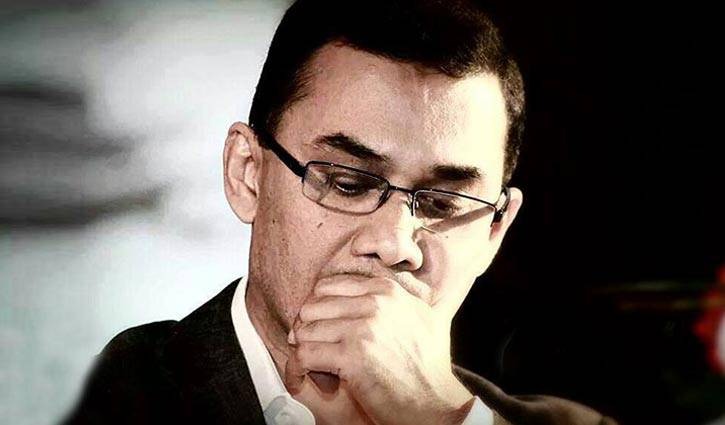In an interview this week, Sheikh Hasina, the prime minister of Bangladesh, called on the British government for help. It was not the first time, she said, that their assistance had been sought in bringing a convicted criminal to heel.
Sheikh Hasina will be visiting the UK this weekend as an honoured and invited guest to celebrate the Coronation of His Majesty The King and Her Majesty The Queen Consort over a weekend of special events between 6–8 May. It will be a renewed opportunity for her to push through the extradition of not only a political opponent, but someone whom she believes tried to have her assassinated.
In 2004, Sheikh Hasina narrowly survived an attempt on her life when an anti-terrorism rally was ambushed in Dhaka, the capital city of Bangladesh. More than a dozen grenades were hurled from rooftops into a 20,000-strong crowd as the stateswoman finished her address from the rear of a truck.
The 75-year-old escaped with minor injuries but others were not so fortunate; 24 people were killed and hundreds were injured.
In 2018, a court in Bangladesh sentenced 19 people to death for their role in the attack but Sheikh Hasina, who has led Bangladesh’s Awami League government since 2009, is still chasing justice.
Her quarry? Tarique Rahman, a political opponent convicted in absentia by a Bangladesh court five years ago for allegedly helping to mastermind the Dhaka atrocity. The 57-year-old was given a life sentence and has also been convicted for other crimes, including his alleged role in embezzling tens of thousands of pounds destined for orphans in Bangladesh.
Although prison sentences have been handed down, Sheikh Hasina argues that victims and their families will continue to be denied closure while Rahman remains a fugitive in the UK, where he settled with his family in 2008.
During a visit to Washington last week, Bangladesh’s longest-serving prime minister refreshed her calls for the British government to assist with Rahman’s apprehension in an interview with Voice of America Bangla service.
“Whoever a criminal is, they should be brought back and their sentence should be carried out,” said Sheikh Hasina. “We are making our efforts in this regard. But now it totally depends on the British government. Will they keep him there or allow the punishment to be executed? It totally depends on them.”
Sheikh Hasina added that her officials had in the past “repeatedly contacted the UK government” to help secure the return of Rahman to Bangladesh. The Home Office refused to be drawn this week, stating: “It is a long-standing policy that the UK will neither confirm nor deny that an extradition request has been received or made.”
Rahman lives in London where there is a Bangladeshi diaspora of some 322,000 and as the exiled leader of the Bangladesh National Party (BNP), he continues to campaign vigorously against the ruling Awami League.
His website, bearing the clarion call to “Take Back Bangladesh”, is used to disseminate political propaganda and rally support for his cause.
To his supporters, the fugitive is hailed as a saviour whose rightful place is at the head of the Bangladesh government. To his critics, Rahman is a ruthless and corrupt operator who will stop at nothing to seize power in his homeland.
Born into Bangladesh’s political elite, Rahman’s father, Ziaur Rahman, was prime minister until his assassination by army rebels in 1981. His mother, Khaleda Zia, was the first female prime minister of Bangladesh, serving two terms from 1991 to 1996 and 2001 to 2006.
She is currently at the helm of the BNP with her son but remains in Bangladesh after being convicted in 2018 for embezzlement. It followed an investigation by the country’s anti-corruption commission that claimed Zia and other high-ranking officials had misappropriated tens of thousands of pounds raised for the Zia Orphanage Trust, which had been set up in her late husband’s name.
However, allegations of corruption have dogged the family for decades.
During Zia’s second term in office, supported by Rahman and his late brother, Arafat, the BNP government routinely featured in Transparency International’s corruption perception index. The trio were accused of taking “fat cuts from business deals” that undermined the country’s economic progress.
In addition to his conviction for the Dhaka grenade attack, Rahman has also been sentenced to 10 years in jail for his role in the Zia Orphanage Trust case and seven years in jail in a separate money laundering case.
Last month, a Dhaka court ordered the trial of Rahman and his wife, Zubaida, over allegations of illicit wealth accumulation.
The case was originally filed in 2007 during the rule of the army-backed caretaker government when Rahman was arrested and imprisoned. He was released on bail the following year, when he left to seek medical treatment in the UK and never returned.
Witness testimonies are scheduled to be given in the coming weeks amid allegations that the couple owned assets worth Tk 48.15 million [£360,000] that were “beyond their means”.
The case – and Rahman’s convictions – have prompted criticism of the BNP’s proposals to overhaul Bangladesh’s government and oppose corruption.
In December of last year, the party published a 27-point charter that outlined its vision for “structural reform” of Bangladesh. It proposed an overhaul of the state system – such as balancing the executive powers of the president, prime minister and the cabinet and creating an upper house of legislature – and declared a zero-tolerance approach to corruption.
The executive director of Transparency International Bangladesh pointed out in January that Rahman’s position at the helm of the BNP with his mother, despite their convictions, severely undermined the party’s proposals for state reform.
“In terms of moral position, I would say it is contradictory,” Dr Iftekhar Zaman reportedly told United News of Bangladesh. “They (BNP) are speaking against corruption but running the party with those convicted.”
Government sources have suggested that if the BNP is serious about its zero-tolerance approach to corruption, it should encourage Rahman to face the allegations against him in court.







